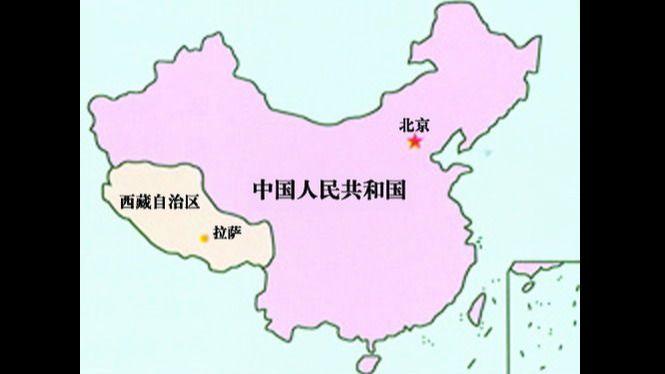First, let's talk about historical reasons. India and Tibet have long-standing cultural, economic, and political ties. Here are some historical reasons:
Traditional religious connections: Buddhism is an important cultural and religious link between India and Tibet. Buddhism emerged in India in the 6th century BC and later spread to Tibet, where it developed into a unique form of Tibetan Buddhism. India has always been the birthplace and center of the spread of Buddhism, while Tibet is one of the most important centers of Tibetan Buddhism in the world. Therefore, the religious connection between India and Tibet is very close.
Economic and trade connections: There are also certain economic and trade connections between India and Tibet. In ancient times, trade between India and Tibet was relatively frequent, mainly involving goods such as tea, medicinal materials, and handicrafts. In addition, Tibetan wool and cashmere were also important commodities in the ancient Indian market.
Political connections: In ancient times, there were also some political connections between India and Tibet. For example, in the 7th century, the Tang Dynasty minister Xuanzang traveled from India to Tibet to spread Buddhism and brought back a large number of Buddhist scriptures and cultural heritage to the Tang Dynasty. Additionally, there were also connections and interactions between some dynasties and political forces in India and Tibet.
The issue of Tibetan refugees: After the Dalai Lama fled to India in 1959, India became one of the largest Tibetan refugee communities in the world. The Indian government has consistently provided certain political and economic support to the Dalai Lama and the Tibetan government-in-exile.
In summary, the relationship between India and Tibet is multifaceted, with deep cultural, economic, and political ties throughout history. These connections and influences have led India to pay attention to and intervene in Tibetan issues.
Specifically, here are some reasons why India is concerned about Tibet:
Traditional cultural and religious connections: Tibetan Buddhism is an important spiritual bond and cultural link between India and Tibet. India has always been the birthplace and center of the spread of Buddhism, while Tibet is one of the most important centers of Tibetan Buddhism in the world. Therefore, India has always been very concerned about issues related to the protection of Tibetan religion and culture, as well as religious freedom.
Strategic position: Tibet is located on China's southwestern border and is an important province and border region of China. India also keeps an eye on changes and developments in Tibet in terms of geopolitics and security, as it directly affects India's border security and national interests.
Territorial disputes: There are some differences and disputes between India and China regarding border issues, including the dispute over the South Tibet region. India believes that the South Tibet region belongs to Indian territory, while China considers it part of China. Therefore, India's concern and intervention regarding Tibet also involve territorial dispute issues.
The issue of Tibetan refugees: India is one of the largest Tibetan refugee communities in the world, with about 100,000 Tibetan refugees living in India. These Tibetans enjoy certain rights and benefits in India but also face some difficulties and challenges. Therefore, there is also a certain level of concern and intervention regarding Tibetan issues.
Economic trade: There are also some economic and trade connections between India and Tibet. Economic cooperation between India and China is gradually increasing, and India hopes to strengthen economic ties with Tibet through trade and investment. For example, transportation cooperation between India and Tibet is gradually increasing, including the construction of roads and railways, which can also promote economic cooperation between India and Tibet.
In addition, India has consistently supported the Dalai Lama's government-in-exile and provided it with certain political and economic support. This has also caused dissatisfaction and opposition from China. Therefore, India needs to carefully consider and balance its approach to issues related to Tibet to avoid impacting Sino-Indian relations and the stability between the two countries.
In summary, India's concern and intervention regarding Tibetan issues are multifaceted, including traditional cultural and religious connections, strategic position, territorial disputes, the issue of Tibetan refugees, and economic trade. For both India and China, it is very important to maintain caution and balance when dealing with these issues.
